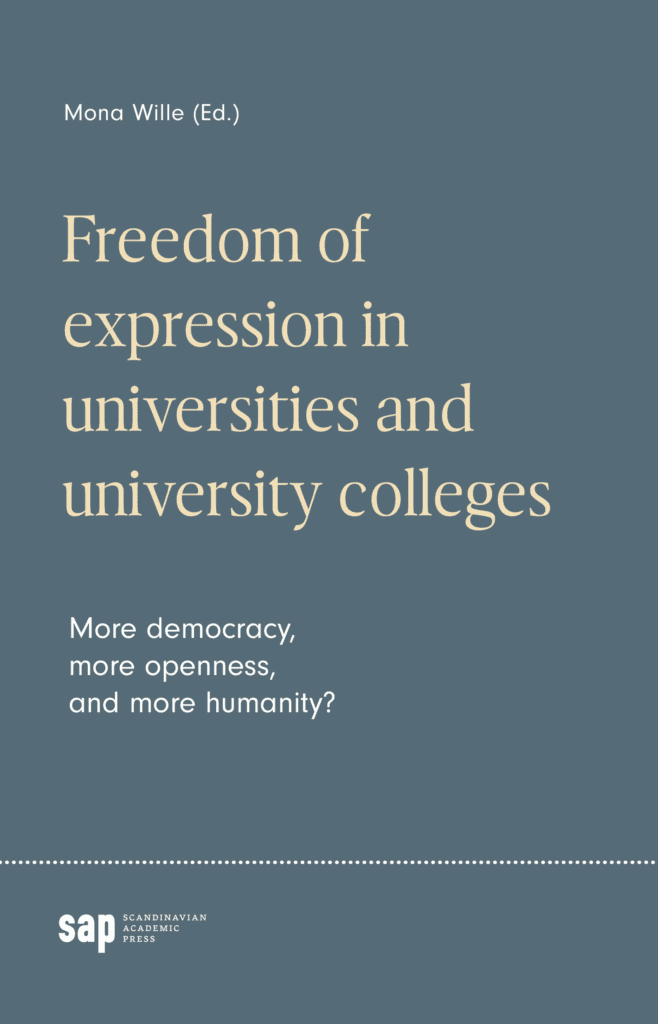Vidar Strømme is a lawyer and partner at the law firm Schjødt in Oslo. He is admitted to the Supreme Court of Norway, and has a broad practice, acting in commercial and civil disputes. He has also worked at the office of the Norwegian Attorney General (civil affairs), and has worked as District Attorney and as Associate Judge. One of his main interests is in the right to freedom of expression, and he has represented many major media companies in important court cases. Strømme is author of several articles and books in this field. He is a board member of the Norwegian branch of ICJ (International Commission of Jurists), and a member of the Human Rights Committe of the Norwegian Assosiation of Lawyers.
Minda Holm is a research fellow at the Norwegian Institute of International Affairs (NUPI). Holm’s research focuses on liberal ideology, anti-liberal values, sovereignty, security politics, and political and social theory. She is a co-editor of the Scandinavian IR journal Internasjonal Politikk and an international affairs columnist for the Norwegian newspaper Klassekampen (previously for Dagsavisen). Holm is also on the board of the international NGO Human Rights House Foundation.
Lars Gule is an associate professor at the Department of International Studies and Interpretation, Oslo Metropolitan University, where he researches and teaches extremism, multiculturalism, and Islam among other things. He received his doctorate in philosophy from the University of Bergen in 2003. He was also Secretary-General of the Norwegian Humanist Association (2000–2005). Gule is a frequent participant in public debates as a commentator on radio and television and as lecturer and columnist. Life stance issues, freedom of religion, and freedom of expression are among the topics he often discusses. Gule is a current board member in BDS Norway and a deputy member of the Norwegian PEN board.
Alison Scott-Baumann is Professor of Society and Belief at School of Oriental and African Studies, University of London. Her work has two interrelated and also distinct research strands: social justice and philosophy. Her research has recently been recognized and rewarded by world-class research grants from Leverhulme (2012–13), ESRC (2012–13) and AHRC (2015–18). With regard to social justice she is best known for her ongoing work on Islam in Britain that dates back to 1997. She has been consulted by the government (2007 Siddiqui Report; 2008-10 Review of imam training) and has received HEA funding on several occasions. In 2015, AHRC awarded Scott-Baumann a major three-year grant to research Re/presenting Islam on cam-pus at SOAS. This project will seek to redress the imbalance in current approaches towards Islam and towards the role of universities in a democratic state.
Stijn Sieckelinck is a senior researcher in the department of Gov-ernance and Political Science, and chair of the Expertise Lab on Resilient Identities at the Institute for Societal Resilience (Fac-ulty of Social Sciences) at Vrije Universiteit in Amsterdam. He has a PhD in Educational studies. He co-developed the train-ing program ‘Dealing with Extreme Ideals’, widely distributed among social-educational professionals (NCTV, Netherlands). He is frequently invited as an expert in education and radicalization by governmental actors, such as the Radicalisation Awareness Network (European Commission). Over the years his projects were granted by the European Commission, the Netherlands Ministry of Health, Welfare and Sport (VWS) and the Ministry of Education (OCW). Sieckelinck won the Marinus Langeveld-prijs in 2010 for his doctoral dissertation.
Bjørn Haugstad served as state secretary with responsibility for higher education and research policy in the Norwegian Minis-try of Education and Research 2001–2005 and 2013–2018. He was Research Director at the University of Oslo 2009–2013. He was member of the Board of Directors of Nordic Institute for Studies of Innovation, Research and Education 2008–2013, and Member of Research Board, Division for Innovation at the Norwegian Research Council 2011–2013. He has also worked as researcher and research manager at SINTEF. Haugstad holds a Doctorate degree (DPhil) from University of Oxford, and a Master of Science in Engineering, Industrial Organisation and Technology Management from the Norwegian University of Science and Technology.
Mona Wille holds a Master of Philosophy (MPhil) from University of Oslo in Higher Education Studies, an international program fo-cusing on the changing functions, policies, and ope rations of Higher Education. While working on her thesis on prevention of radicalization and violent extremism in higher education institutions, she held an intern position at the Norwegian Ministry of Education and Research. Wille is part of the European Commision’s Radicalisation Awareness Network and its working group on Education. Her work with this anthology is partly funded by the Fritt Ord Foundation, a Norwegian a private non-profit foundation, whose object is ‘to protect and promote freedom of expression and the environment for freedom of expression in Norway, especially by encouraging lively debate and through the courageous use of free speech’.
